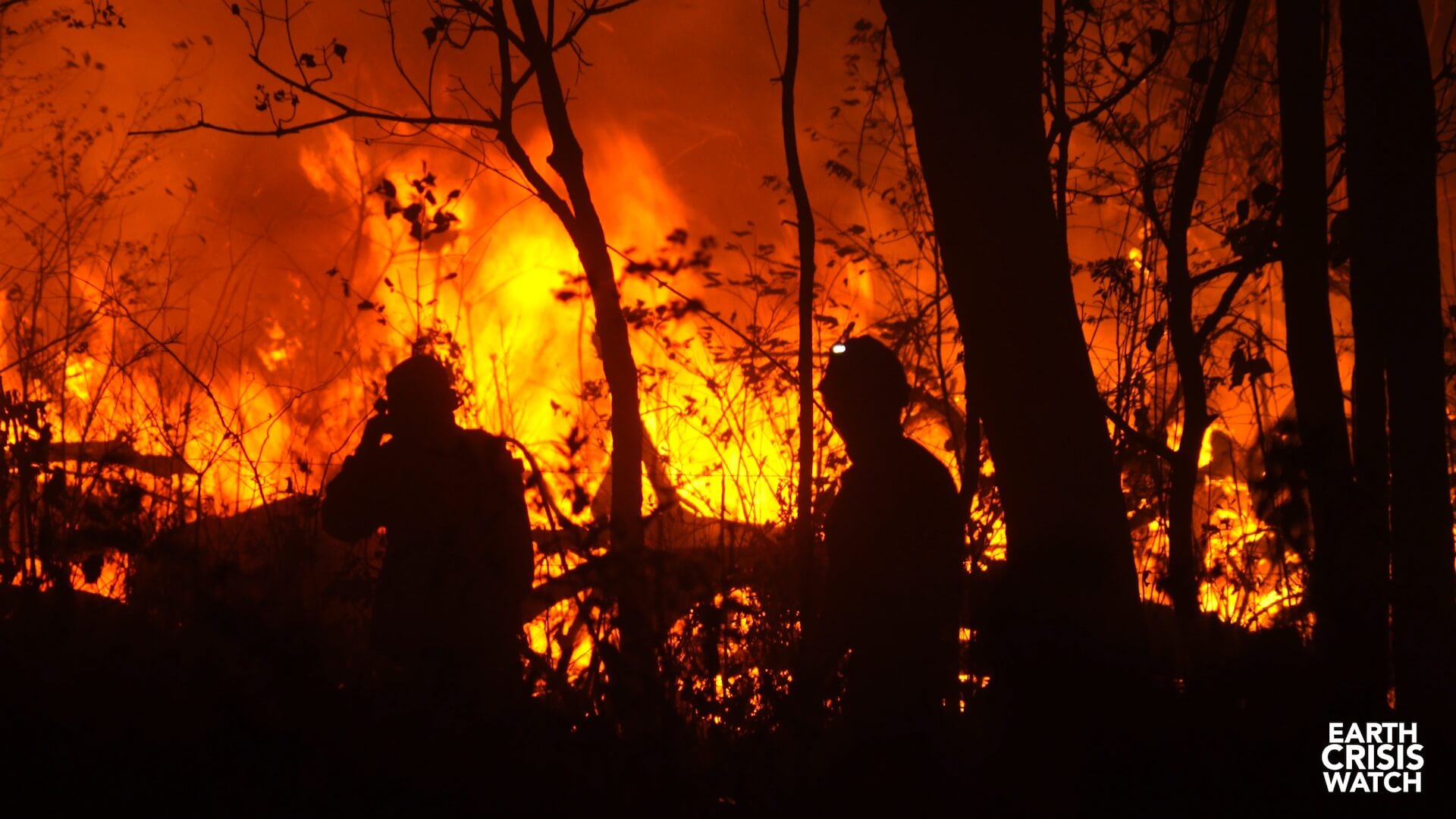NEW YORK – The Human Rights Foundation (HRF) condemns president Evo Morales for failing to acknowledge that his government’s policies contributed to this year’s dramatic increase in forest fires and the ecological damage that has ensued in Bolivia. Since July, fires have destroyed more than six million acres, primarily in the biodiverse Chiquitano dry forest, severely impacting the lives of the indigenous people who reside there. Although coverage in Bolivian state media has downplayed the severity of the fires, the reality is dire.
The fires are closely linked with Morales’ unconstitutional bid for a fourth term in the country’s presidential election on October 20. Since 2013, Morales’ government has granted land parcels in the Santa Cruz region to an estimated 1,000 communities that support Morales. Because Santa Cruz is considered an opposition stronghold, critics and former officials in the ruling party have denounced Morales for using the land grants to increase his voter base in a crucial district. These new communities have been accused of deliberately starting the fires to clear their new land for settlement.
In a parallel move, Morales has courted the votes of industrialists in Santa Cruz by signing a new beef export agreement with China, dramatically increasing the demand for beef produced by large- and small-scale farmers in the region. To facilitate their work, Morales also pushed through a presidential decree legalizing the use of “controlled fires” to expand agro-cattle territory. In Bolivia, presidential decrees do not require buy-in from voters or a consultative process. These newly-legalized fires have also contributed to the current blaze.
“It is tragically ironic that Evo Morales’ scramble to extend his term as ruler of Bolivia has driven this self-proclaimed defender of Mother Earth to condone unprecedented environmental destruction,” said Thor Halvorssen, president of HRF. “We recognize these measures as the desperate behavior of an authoritarian president facing a public reckoning. Morales is afraid of losing the next election and is resorting to all of the typical tricks of a dictator: suppressing independent media, slandering activists, manipulating voting populations, interfering with the judiciary, and even allowing the destruction of the environment if it is to his electoral benefit.”
Despite losing a 2016 referendum that would have amended the constitution to extend term limits, Morales is running for a fourth term. (The amendment was later approved by a government-controlled constitutional court in 2017, a decision that was met with widespread public protests.) Morales has also continuously harassed and attempted to silence civil society activists and environmentalist groups as they speak out in pro-democracy protests.
Having witnessed firsthand the devastation caused by the forest fires, Jhanisse Vaca-Daza, founder of the Bolivian civil society movement Rios de Pie (Spanish for “Standing Rivers”) and graduate of the HRF Freedom Fellows program, denounced President Morales’ negligence in dealing with the fires. “President Morales presents himself as an ally of the environmental movement, yet in Bolivia his actions indicate that he is in fact an adversary of those who are engaged in environmental conservation and protection efforts,” said Vaca-Daza. “His political agenda has encouraged agricultural tactics that have contributed to the ongoing fires destroying our ecosystem.”
“President Morales failed to acknowledge the severity of the fires for weeks, even as trees and animals around him turned to ash. He initially balked at the idea of accepting foreign aid, and this resulted in the fires reaching uncontrollable levels. His refusal to declare a national disaster is egregious, and the resulting ecological damage will likely take more than two centuries to reverse,” she said.
Rios de Pie activism is currently focused on pressing Morales to declare the fires a national disaster. Doing so would activate an emergency response procedure, according to Bolivia’s Law 602. These processes include the establishment of a National Emergency Operations Committee to coordinate firefighting operations nationally and the expenditure of public funding toward emergency operations. A national disaster declaration in Bolivia could also activate mechanisms within international bodies to quickly assist the country, such as those stipulated by the United Nations.
HRF is a nonpartisan nonprofit organization that promotes and protects human rights globally, with a focus on closed societies.
For media inquiries, please contact [email protected].
